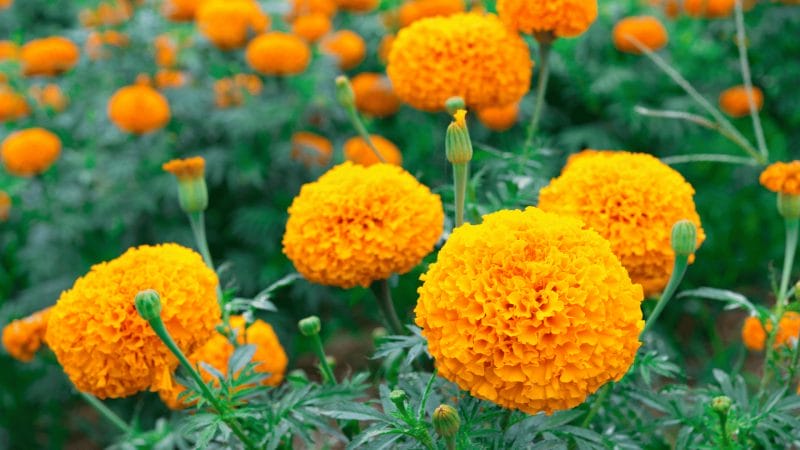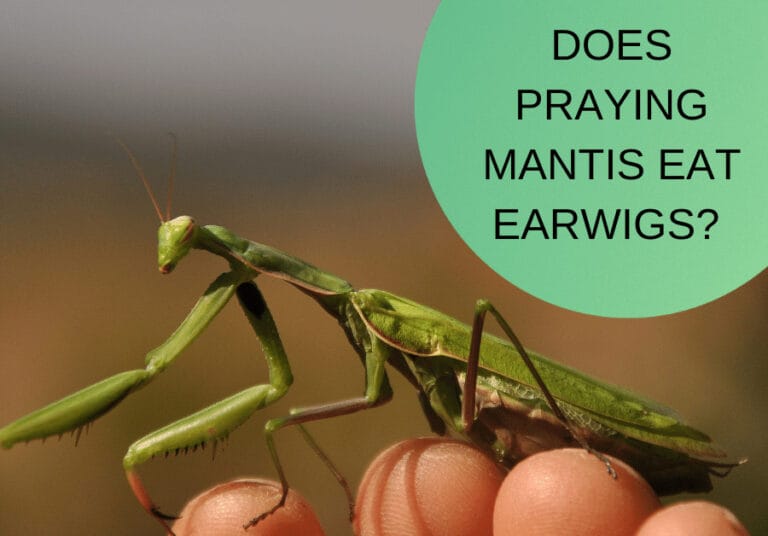
Basil is a Mediterranean plant used as a culinary herb and medicinal plant. Basil is a superstar when it comes to companion planting in your garden. It is one of the best plants that have many great companion plants meaning you can maximize your garden space and increase productivity at the same time. Pairing basil with other plants brings added benefits such as enhanced growth and excellent pest control in your garden. This article looks at the best basil companion plants you can grow together in your garden. It also highlights the benefits of companion planting.
Table of Contents
Basil Companion Planting
Companion planting is the art of cultivating different plants together for added mutual benefits. Basil is a culinary herb that grows easily in herb and vegetable gardens. Basil companion plants do a great job of attracting beneficial insects for the benefit of each other and controlling pests that harm the plants in your garden.
Companion planting enhances soil nutrients, thus enabling your basil to stay healthy and yield more produce. It also enhances the flavor and growth of basil.
Why You Should Plant Basil Companion Herbs
- Improve the soil of your garden
Basil companion plants keep the soil moist, enhance nutrients and provide ground cover. Companion plants attract beneficial insects in your garden.
- Disease and Pest Control
Basil also helps to repel harmful insects and pests from your garden. It naturally controls pests like whiteflies, asparagus beetles, flea beetles, parasitic wasps, mosquitoes, cabbage moths, tomato hornworms, and other garden pests. The strong aroma of the basil also keeps insects away.
- Attracting Beneficial Insects
Basil companion plants attract beneficial insects to your backyard garden. The plants will increase your yields due to increased pollinators in the garden. These herbs attract insects, such as honey bees, that aid in pollination. Plants such as borage attract beneficial insects such as ladybugs that bring the added benefits of controlling pests.
- Maximizing Your Garden Space
Companion planting will help you save more space in your vegetable garden. It also encourages productivity and supports plant diversity in your backyard. You can plant more basil companion plants that mutually benefit each other, thereby saving space.
Check out this post on leveling up – Maximizing Your Garden all year long.
The Best Companion Plants for Basil
Tomatoes

Tomato is a great plant to grow with basil in your garden. Pairing tomatoes and basils in your garden is a perfect way to boost their growth. It is also a great way to increase production. Tomato plants and basils require similar conditions, such as full sun and water making them a perfect companion for your backyard garden.
Basil and tomatoes are an excellent combination that can keep insect pests and harmful insects away from your precious home garden. Basil plants produce a strong balsamic aroma that repels harmful insects such as mosquitoes, tomato hornworms, whiteflies, aphids, tomato worms, and houseflies from your home garden.
The companion of tomatoes and basil will complement each other’s best qualities. Basil can greatly improve the taste of your tomatoes and vice versa.
Asparagus

Basil and asparagus plants are great companions in your home garden. Asparagus is a flowering herb that produces shoots that are used as spring vegetables. The plant forms one of the best combinations with basil as they mutually benefit from each other.
Basil and asparagus will do a great job of attracting beneficial insects such as ladybugs to your home garden. The ladybugs will help you control pests and keep harmful insects such as cabbage maggots, cabbage aphids, and cabbage loopers away from your garden.
Basil boosts the growth of asparagus and deters asparagus beetles from damaging the herb. Basil attracts beneficial insects that protect asparagus from harmful insects. On the other hand, asparagus attract beneficial insects that keep away aphids and control pests in your veggie garden.
Chili Peppers

Some of the best basil companion plants are peppers plants. Chili peppers and basil will have a mutual benefit companion as they will complement each other in your vegetable garden. Chili peppers love well-drained soil. The basil plants on the other side trap heat and moisture from the atmosphere thereby providing a moist soil for enhanced chili pepper growth. Basils also protect chili peppers from direct sunlight thereby providing the best condition for them to thrive.
Chili peppers and basils are the perfect companion plants for pest control in your herb garden. Basils and peppers work together to keep away common harmful insects such as parasitic wasps, flies, thrips, and mosquitoes from your garden.
Chili peppers will also boost the flavor of your basils since the pepper leaves form a canopy that protects the basils from harsh weather conditions.
Chamomile

Chamomile is a flowering herb that forms a good companion with different plants such as basils. Chamomile plays an important role in increasing the concentration of essential oils in your backyard veggie garden’s basils and other herbs.
This annual plant has two common varieties namely; German and Roman Chamomile. The German annual herb is the best basil companion plant. This herb is easy to maintain and care for compared to Roman chamomile. Basil and chamomile are annual herbs that have the same growing season making them the best companion plants.
Oregano

Oregano is a good companion plant for basil and other herbs in your backyard garden. Oregano is a popular herb due to its ability to keep away harmful pests, and garden pests and attracts beneficial insects. It is a low-maintenance plant that grows in similar weather conditions as basil.
Marigolds

One of the best basil companion plants is the marigold. The combination creates the most ideal garden pest repellant. For effective pest control, plant marigolds and basil herbs are close to each other.
Marigolds are small and bushy thereby providing you with a great choice for an eye-catching border for your vegetable garden. This plant is excellent at attracting pollinators such as honey bees that aid in pollinating your basils and other herbs in your backyard garden. Marigolds hold flowers that attract insects late in the season when all other plants have shed their flowers.
Marigolds will also protect your basils from pests through chemicals in their roots. This chemical can eliminate pests from your garden for a long time even after you stop planting them.
The best way to pair marigolds and basils in your veggie garden is to plant the basils first and then plant the herb later. The ideal gap between the two plants should be between 18 and 24 inches. When the soil is dry, water both plants but don’t allow the soil to be soggy.
Marjoram

Marjoram is an easy-growing companion with basil. This herb is a perfect companion with basil when they are placed in the same pot. Marjoram is excellent at attracting beneficial insects that feed on harmful insects such as aphids that damage basil.
Marjoram is a perennial culinary herb that can be easily found on stores and supermarket shelves. Potted marjoram herbs are transplanted next to basils for a perfect companion.
Bell Peppers

Bell peppers and basils form a great companion. These plants mutually benefit from each other when planted together. Both bell peppers and basils improve each other's flavor.
Basil herbs will protect bell peppers from harmful insects such as spider mites, flies, and mosquitoes due to their strong scent. On the other hand, bell pepper protects basil plants from direct sunlight and extreme weather conditions. Bell peppers will cater to basil’s light needs in your backyard garden due to their broad leaves.
Borage

Borage is a great choice for your garden that contains basil. It is an annual herb that produces purple flowers. The herb is a good companion with basil due to its ability to attract beneficial insects such as honey bees and to repel harmful insects such as asparagus beetles from your backyard garden.
The two plants pair well. Borage can extract key minerals from the soil and place them close to the surface for the basil to absorb them. Moreover, borage will make your backyard garden more colorful and eye-catching.
Chives

Chives are considered to be excellent companions with basil since they grow in similar weather conditions. Chives and basil pairs well since both are culinary herbs. The strong aroma of the chives helps control pests such as aphids and other harmful insects in your vegetable garden.
Parsley

Parsley is one of the best companion plants for basil. Both plants grow under the same weather conditions. Parsley and basil require the same amount of sunlight and water. The two require moist soil to grow well.
Parsley complements basil by deterring harmful insects such as nematodes and asparagus beetles from your veggie garden.
Plants to Avoid Growing With Basil
Now that we've gone over several of the most effective plants to grow with basil, allow's talk about some plants that you should stay clear of growing with your basil plant.
Cucumbers

Cucumbers are a bad basil plant companion because the two plants compete for resources, such as water and nutrients. Basil can also impact the flavor of cucumbers. Basil can also impact the taste of cucumbers. Cucumbers tend to handle the taste of their next-door neighbors; therefore, if you do not desire your cucumbers to taste like basil, it's finest to avoid planting them with each other.
Fennel

Fennel is an additional plant that you should avoid expanding with your basil. Fennel attracts bugs that might infest your basil plants and doesn't play well with others, and also can slow the development of various other plants in the yard.
Thyme

Thyme and basil's growing requirements are different. Thyme needs drier soil and is tolerant of sandy soil, whereas basil requires moist, nutrient-dense soil.
Common Rue

Like Fennel, Rue is a plant you want to avoid planting near basil. Rue can stunt the growth of basil and make it more susceptible to pests and diseases. Some say Rue makes the flavor of basil more bitter.
Sage

Sage is another herb that you should avoid planting near your basil. The two plants have different growing needs. Sage prefers drier soil than basil.
They also have different water requirements, with sage needing less water than basil.
Conclusion: The Best Plants to Grow Alongside Your Favorite Herb
I highly recommend companion planting with basil in your garden. The companion plants we have discussed above can substantially improve your garden yields. Companion planting with basil will naturally deter and control pests by repelling harmful insects such as asparagus beetles. It will also attract beneficial insects such as honey bees and other pollinators to your garden.
Basil companion plants complement each other thereby enhancing productivity. The plants enhance their growth and flavor of each other. Companion planting will also enhance your garden productivity and provide you with a variety of plants.
If you are growing basil, which companion plants are you pairing with basil?



